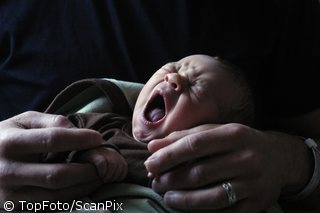An acronym that had dominated headlines at previous CeBIT shows seemed to be little more than a footnote at this year's event
Published:
18 March 2003 y., Tuesday
An acronym that had dominated headlines at previous CeBIT shows seemed to be little more than a footnote at this year's event. The buzz that once accompanied 3G (third-generation) broadband mobile Internet appears to have fizzled even before the service has taken off.
Grabbing the attention this year were wireless technologies, such as Wi-Fi and Bluetooth, that are, above all, available.
Indeed, handset availability, which dogged the start of GSM (Global Service for Mobility Communications) in Europe over a decade ago, threatens to trip mobile operators eager to expand into the market for high-speed mobile Internet services.
Continuing a troubling trend in the European mobile industry, Jьrgen von Kuczkowski, head of Vodafone Group PLC's German unit, said last week in Hanover that the operator will delay the launch of commercial 3G service, this time to the second half of 2003 and only then if enough handsets are available. But Kuczkowski was quick to defuse speculation of possible difficulties, should the operator be forced to announce yet another delay. "There will be no Big Bang" when the German subsidiary launches 3G, he said. "It's not at all important if you start a few weeks earlier or later."
For the record, the delay has been nearly a year. Vodafone D2 GmbH has been paying interest on a huge loan for its Ђ8.5 billion (US$9.2 billion) 3G license acquired more than two years ago, while generating zero revenue from the new mobile broadband service during this time.
Now Kuczkowski is talking about testing 3G with a select number of business users over the next few months. He has also dropped some price points: 3G handsets will cost around Ђ300 and fees for the new high-speed packet-based data services will be low enough to compete with the competition. Those remarks were aimed at rival T-Mobile Deutschland AG, which announced plans ahead of CeBIT to cut its mobile data fees for GPRS (General Packet Radio Service) up to 70 percent, with handsets to range from Ђ100 to Ђ500.
T-Mobile and Vodafone account for roughly 70 percent of the German mobile market, the largest in Europe.
Šaltinis:
itworld.com
Copying, publishing, announcing any information from the News.lt portal without written permission of News.lt editorial office is prohibited.
The most popular articles
 Nine nominations for the 2010 Sakharov Prize for freedom of thought have been tabled by EP political groups or groups of over 40 MEPs.
more »
Nine nominations for the 2010 Sakharov Prize for freedom of thought have been tabled by EP political groups or groups of over 40 MEPs.
more »
 As the primary source of daily noise, pollution and congestion, car traffic relentlessly erodes our health and quality of life.
more »
As the primary source of daily noise, pollution and congestion, car traffic relentlessly erodes our health and quality of life.
more »
 The European Parliament hosted the 9th Conference of Parliamentarians from the Arctic region from 13-15 September in Brussels.
more »
The European Parliament hosted the 9th Conference of Parliamentarians from the Arctic region from 13-15 September in Brussels.
more »
 Get on your (electric) bike! That's the message of some cycling groups who are currently holding an exhibition of electric bikes outside the European Parliament.
more »
Get on your (electric) bike! That's the message of some cycling groups who are currently holding an exhibition of electric bikes outside the European Parliament.
more »
 Philippine officials search for the mother of a baby, found dumped in a rubbish bin on board a Manila-bound Gulf Air plane.
more »
Philippine officials search for the mother of a baby, found dumped in a rubbish bin on board a Manila-bound Gulf Air plane.
more »
 Millions of Muslims in Bangladesh prepare to celebrate the end of the holy month of Ramadan.
more »
Millions of Muslims in Bangladesh prepare to celebrate the end of the holy month of Ramadan.
more »
 The European Parliament has voted to revise legislation on animals used for scientific purposes.
more »
The European Parliament has voted to revise legislation on animals used for scientific purposes.
more »
 Sausage dogs take to the streets of Cracow in medieval fancy dress to celebrate the 600th anniversary of 'The Battle of Grunwald'.
more »
Sausage dogs take to the streets of Cracow in medieval fancy dress to celebrate the 600th anniversary of 'The Battle of Grunwald'.
more »
 EU Member States should take positive discrimination measures to improve the lives of older women, including paid leave for carers, says Parliament in a resolution voted on Tuesday.
more »
EU Member States should take positive discrimination measures to improve the lives of older women, including paid leave for carers, says Parliament in a resolution voted on Tuesday.
more »
 Tens of thousands of Muslim worshippers gather at Jerusalem's al-Aqsa mosque to celebrate 'Laylat al-Qadr' - one of the holiest nights of Ramadan.
more »
Tens of thousands of Muslim worshippers gather at Jerusalem's al-Aqsa mosque to celebrate 'Laylat al-Qadr' - one of the holiest nights of Ramadan.
more »